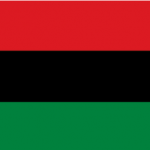The Black Panthers, in my opinion, represent Black independence and autonomy. They impacted my life growing up through education and real-life examples of African Americans who positively impact their communities. In fact, their contributions have positively impacted millions of Americans, and they are probably unaware. As we enter Black History Month, let us take a moment to reflect on this influential organization and recognize them as the “unknown man” making lasting contributions to the greater cause.
Some Background Information on the Black Panthers
Before we begin, here is a slither of background information on the Black Panther Party
- The official name is The Black Panther Party for Self-Defense. This political organization was founded in 1966 (Oakland, California) under Huey P. Newton and Bobby Seale in response to the unchecked and onging police brutality experienced by African Americans.
- The Black Panthers followed a 10 point program that addressed the fundamental needs of Blacks (African Americans).
- The Black Panthers advocated for the needs of all people, not just Blacks.
- The Black Panthers started many social programs that are still active in this country.
- The Black Panthers were pro-black but not anti-white. They partnered with others with a shared vision. In fact, there was a White Panthers group that supported the mission of the Black Panthers.
- Presidents Lyndon B. Johnson, Edgar Hoover and Richard Nixon condemned the Party and it was identified as a terrorist group by the FBI.
- The Black Panthers had internal sexism, as did many political parties, so it was exceptional that Newton chose a woman, Elaine Brown, to take over the organization. After that, the Party was a majority of women.
- The Black Panther Party for Self-Defense was dissolved in 1982.
- Huey P. Newton was shot and killed in Oakland, California in 1989.
Reference: Important Facts about the Black Panther Party
Movie: Judas and the Black Messiah
School Breakfast Program (1969 – current day)
This is an easy topic to address. You know the free breakfast (and lunch, and after-school snacks) that low-income students, schools, and districts receive? The Black Panther Party (BPP) made that a possibility. In short, BPP acted on what everyone knew: hunger is a distraction for a child trying to learn. They took it a step further to say “…and we will do something about it.” They started by feeding the children within their reach. Starting in 1969, within a year they had already fed thousands of children and laid the foundations for what will become today’s federal food programs. This was especially important during COVID shutdowns, when many households depended on school-based food for their children were cut off from their source. Federal programs made it possible for children and families to continue to receive food through school food services and Food Stamps regardless of income.
As a side note, Shirley Chisholm (the first African American and woman to run for President of the United States, first Black woman in Congress) spearheaded the Women, Infants and Children program. Today, we simply call this WIC. It makes basic nutritional food available to this low-income demographic. Thankfully, the program includes the cost of baby formula which can impact the budget of a family in need.
Reference: https://www.history.com/news/free-school-breakfast-black-panther-party
https://www.nokidhungry.org/blog/dyk-shirley-chisholm-making-history-service
Free Health Clinics (1966 – 1975)
The 1965 Medicare and Medicaid Act required hospitals to provide services to all persons regardless of race or ethnicity if that establishment received federal funds. This was true in law, but not in practice. African Americans experienced minimal to no direct access to medical care that was not socially identified as accessible to them. Another indicator that America had not changed. Huey P. Newton responded in 1966 by establishing the Black Panther Party and by 1968 the Black Panthers had started Peoples’ Free Medical Clinics (FPMS) as an alternative. Notice the use of the contraction in Peoples’. This indicates that the clinics were of the people and belonged to the people. They were for their use.
The clinics were another grassroots community-based social establishment that provided the services to meet the needs. The free medical services extended to include professional staff, labs, pharmaceuticals, nurses and so on. This was incredibly important for the Black community which has a valid historical mistrust of mainstream professionals, staff, and services. In fact, FPMS provided so much community education on sickle-cell anemia (a genetic disorder unique to African Americans) that Congress passed the National Sickle Cell Anemia Control Act (1972). In addition to this, FPMS was a foundation for how we address and deal with public health today.
As you enter into Black History Month, I encourage you to take some time to research the Black Panther Party. You may be surprised at what you learn. Lastly, if you noticed, I did not mention the official month that we celebrate Black History. That was intentional. Every month is Black History Month because Black History is American History.
If you enjoyed this write-up, remember to share it.










Comments 2
Thank you for sharing this!
Thanks for such a great spotlight this month and some new information about the Black Panthers.